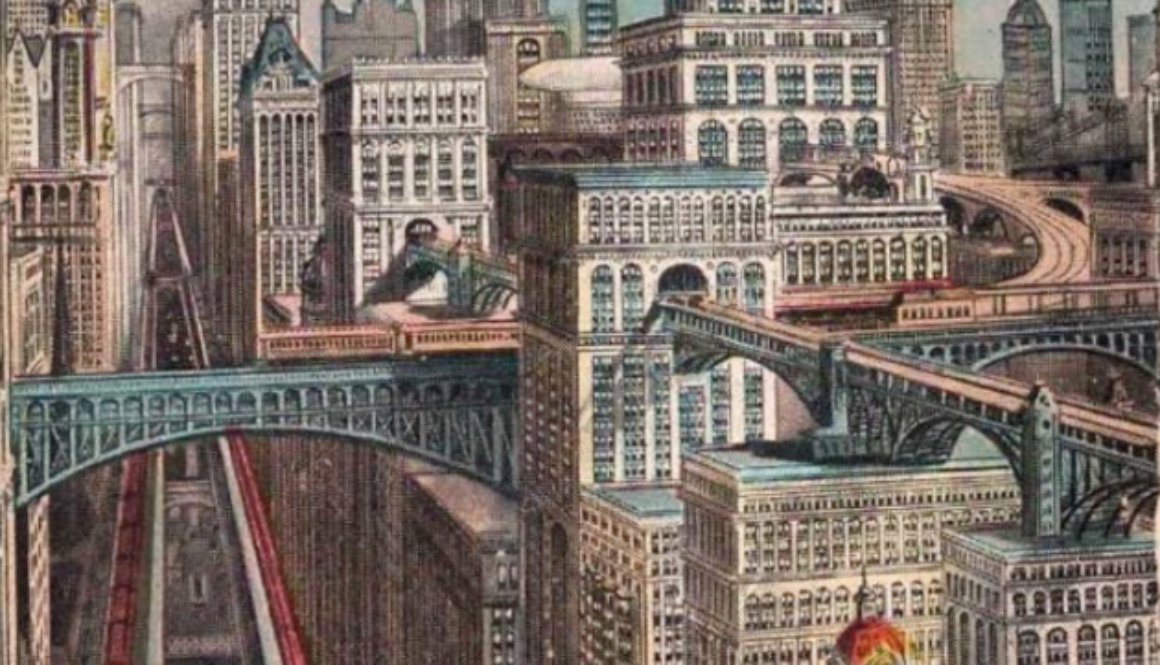Mark Laporta: The Probable Future of Sentience
In American culture, the future is supposed to be the place where every social and cultural dilemma is solved. In the land of Someday, we’re told, famine, disease, poverty and inequality will vanish, through education, innovation, technology, redistribution, land reform and enlightened governance. Tomorrow, we like to believe, is where Love triumphs, Evil is vanquished and Rent is affordable. There’s just one problem.
The future will be full of people like us.
You know, complicated people with contradictory desires, who are tempted to act on their impulses. All the same, because I’ve personally witnessed a small, incremental improvement in the human condition, I allow myself to imagine a better future.
What I can’t imagine is a sentient being who is “99 and 44/100 percent pure,” no matter how much society advances. After all, at the base of every skull is our evolutionary heritage: a selfish little monster whose hunger can never be slaked.
Surviving the fall.
That’s why I’m sure the future will be inhabited by beings much like us. Because every sentient species is the product of evolution. It rises up through the ranks — as predator or prey — until mounting self-awareness leads to an epiphany. The result is the self-justifying superego at the foundation of civilization. Forget fire. Forget agriculture. We became who we are the moment the first homo sapiens said, “I didn’t want to do it, but an evil spirit made me.”
We’ve been in the self-justification business ever since. Fast-forward nearly 3000 years, to the era described in my upcoming novel, Probability Shadow, and you’ll meet both human sentients and their alien counterparts — still repulsed by their animal nature. Yes, the trappings are different. But the self-centered structures at the core of the cerebral cortex are as firmly rooted as ever.
Tumbling down to empire.
Some things never change. Most of the humans you’ll meet in Probability Shadow, are citizens of a vast commercial and military empire. Though they ventured out from the Milky Way with the best intentions, the experience of being greeted as gods, on dozens of underdeveloped worlds, simply went to their heads.
Eager to help, the humans established a program of intergalactic aid. In exchange for grain, natural resources and cheap labor, they introduced the aliens to the game-changing technologies that nominally end all suffering. Within a century, their commercial network grew large enough to require a central administration with a set of Terms and Conditions to regulate commerce and personal conduct.
In time, a competing class of newly space-worthy civilizations arose. To protect their investments, the humans created a space fleet of immense power. Rebellion was quashed, smugglers were annihilated, and the Rule of Law was rigidly enforced.
All that was missing was a reliable self-justification mechanism. Accordingly, at a time of economic downturn, a band of opportunists fanned the flames of a religious revival. A frightened populous voted for theocracy — and the galaxy-spanning Terran Protectorate was born.
Clawing up to the light.
Now, I don’t mean to assert that only the dark side of sentience has a future. Love, compassion, empathy and creativity will exist side by side as by-products of civilization. In Probability Shadow, when a terrifying evil emerges from beyond the boundaries of Space and Time, sentients from five different species step up to defy it. They must repel an onslaught from an ancient race of mutants with unprecedented control over the laws of Probability itself. The task is daunting, but they pursue it unselfishly.
Whether they succeed or fail, a few dissident humans, the Krezovics, the Grashardi, the symbiotes, the Dralein and the ghostly remnants of the Ootray must draw on positive mental traits. These are qualities of mind that, like their negative counterparts, are as old as the first sentient ape to stand up in the savannah and bark “I am.” As I see it, the survival of these qualities, well into the future, is limited only by the persistence of space-time itself.
Mark Laporta is the author of the acclaimed Changing Hearts of Ixdahan Daherek series. His new novel, Probability Shadow, will be published in October by Chickadee Prince Books. Pre-order now in paperback or ebook on Amazon, Barnes & Noble or at a bookstore near you , and visit him the weekend of 9/28/2018 at the Capclave science fiction convention in Rockville, Maryland.
Image of future New York, source unknown, dated as early as 1911.
